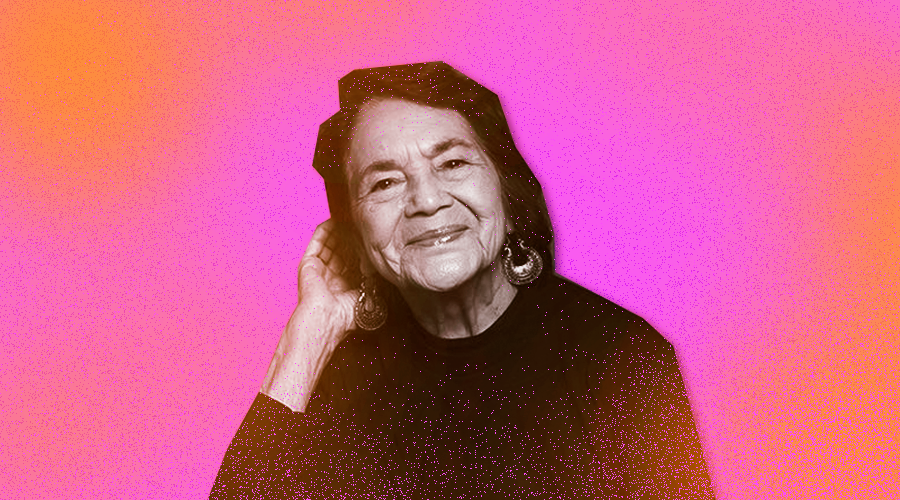With the end of the Deferred Action for Childhood Arrivals (DACA) program, which allowed undocumented individuals to go school or work, and a persistent push for the border wall, many individuals from the Latinx community are feeling under attack. Recent political activism is reminiscent of the Chicano movement’s struggle towards equality.
Story by Ashley Nava
Illustration by Ryan Hicks
In a time where hope is out of reach emerges Dolores Huerta chanting “Sí se puede!” “Dolores,” a film dedicated to the titular activist and co-founder of the United Farm Workers, finally tells the story of the woman who was banned from Texas public school curriculum.
For Vanessa Rodriguez, government sophomore and DACA recipient, Dolores’ perseverance during the Chicano movement, and even her work today, is something that she identifies with during this political time. “Undocumented students, and people in general, need to know that their efforts are valid,” Rodriguez says. “Sometimes it might seem that only politicians can enact change, but in these times [the power of people] is making the change. Although our names may not be written down in history books individually, we all take a part of this effort. Dolores Huerta encompasses this.”
Dolores led the Delano grape strike and boycott demanding better pay and working condition for farm workers and was the lead negotiator in workers’ contracts after the strike. She was always seen on the frontlines and was sent to the hospital at the age of 58 after being beaten with a baton by a police officer during a protest against former President George H. W. Bush.
Today, Rodriguez, a board member of the University Leadership Initiative, believes that women continue to play a critical role in the Latinx community. “The activism that is happening around immigration reform is very much women-led,” Rodriguez says. “United We Dream is a national immigrants rights reform organization and their executive board is made up of mostly women. It’s empowering to say that woman are taking these roles more willingly because we read about the obstacles women face and we are not willing to let that stop us.”
Professor Olivia Mena, full-time lecturer at Mexican American and Latina/o Studies at the University of Texas at Austin, talks about Chicanas, such as Dolores, and their role in the Chicano movement in her intro to Mexican American studies and Chicana feminism classes. “Often the farm workers movement is what is recognized in the Chicano movement, with Cesar Chavez at the forefront,” Mena says. “Chicana activism in the Chicano movement often gets silenced and marginalized. I try to make that really central to the courses I teach to try to correct it.”
Chicanas at the time were also caught between the women’s liberation movement and Chicano movement, neither of them being intersectional enough to address issues they faced. Dolores, a mother of 11 children, for a time didn’t identify with the feminist movement due to her pro-life stance as a Catholic. For Sabina Ibarrola, herbalist and cultural worker, this was one of the points in the film that made an impression on her.
“I like the way she was able to talk frankly about times she grew,” Ibarrola says. “She talks about times when she didn’t believe in abortion when she encountered the feminist movement and met Gloria Steinem. I think her being able to talk honestly about struggle and ways in which she grew humanizes her.”
As an educator in Mexican American studies, Dr. Mena notes that Mexican American history is largely absent from school curriculum. She hopes the film raises consciousness around this issue. “When I have students come into my class and encounter that history for that first time they are able to connect with themselves,” Dr. Mena says. “They have their experiences and their family’s experiences validated. It’s a shame that you have to wait until college to have that. The importance of films like this one and these histories more generally are important because it creates a more inclusive American history.”
As a young Chicana, Ibarrola says she wish she had known about Dolores Huerta growing up. Wearing an “Anzaldúa & Castillo & Cisneros & Moraga” black tee in honor of Chicana writers to the screening, Ibarrola hopes the film to be as widespread as Dolores’s work. “I wish this movie would’ve come out when I was in high school.” Ibarrola says. “Seeing two hours worth of Latinos and Latinas on screen organizing and how widespread their impact was, I think for a lot of young folks to see it will be very powerful. I hope that people are able to take that in and to be infused with that inspiration.”












































